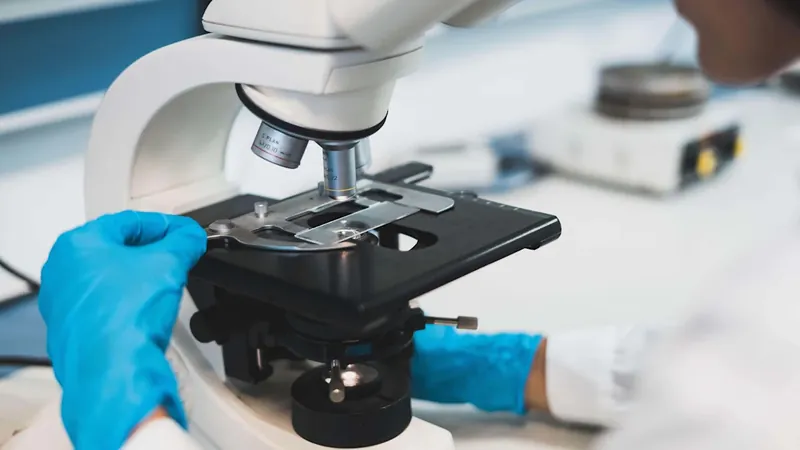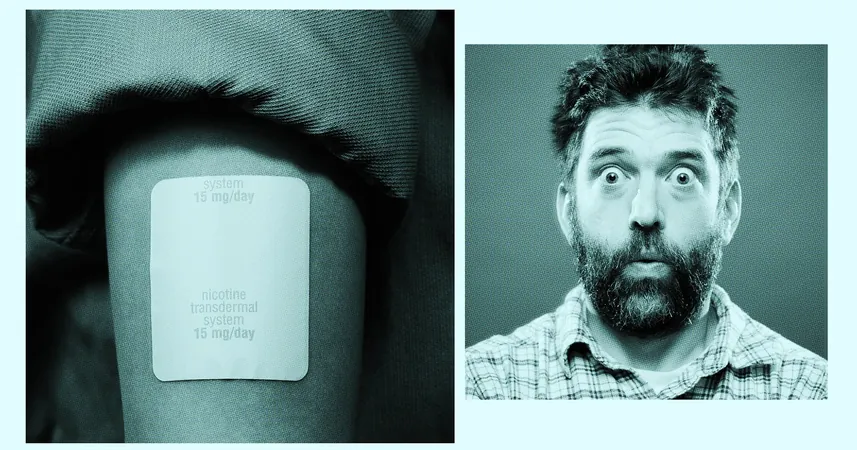
Breakthrough Studies Reveal Psilocybin's Potential to Transform Mental Health in Cancer Patients and Those Battling Addiction!
2025-01-17
Author: Wei
Recent Studies Unveil Groundbreaking Insights
Recent studies have unveiled groundbreaking insights into the therapeutic benefits of psilocybin—a naturally occurring psychedelic compound found in certain mushrooms—that may lead to significant improvements in mental health for individuals grappling with cancer and alcohol addiction.
Study Published in The American Journal of Psychiatry
A study published in *The American Journal of Psychiatry* highlights the effects of psilocybin-assisted therapy (PAT), which showcased remarkable and lasting changes in personality traits among patients suffering from alcohol use disorder (AUD). This research follows a prior investigation published in *Nature Mental Health*, indicating that psilocybin, when combined with psychotherapy, could greatly enhance mental well-being in cancer patients.
First Study Findings
The first study, involving 79 patients facing cancer alongside various mental health challenges—such as anxiety, depression, obsessive-compulsive disorder (OCD), paranoia, and psychosis—was conducted through two randomized, placebo-controlled phase 2 trials. Participants initially received a large dose of psilocybin or a placebo treatment that consisted of either vitamin B3 or a low-dose of psilocybin.
Over a period of 6 to 7 weeks, the treatment groups underwent a switching phase, accompanied by psychotherapy sessions before and after each dosing. Throughout the study, patients completed mental health questionnaires at the start and again six months after their second dose.
The results were compelling: psilocybin therapy significantly reduced symptoms of anxiety, depression, interpersonal sensitivity, hostility, OCD, and somatization in the cancer cohort. Notably, no lasting effects of phobia, paranoia, or psychosis were observed. Dr. Petros Petridis, the study's lead author and clinical assistant professor at NYU's Grossman School of Medicine, remarked, “Our findings suggest that the mental health benefits of psilocybin therapy for cancer patients may reach far beyond what we have previously understood.”
Second Study on AUD
Building on these findings, the second study—which rolled out in January 2025—focused specifically on the impact of PAT on personality traits in individuals with AUD. It proposed that PAT could lessen personality abnormalities and impulsivity, thus helping to reduce alcohol consumption.
This investigation enrolled 84 adults suffering from AUD, dividing them into two groups—one receiving psilocybin and the other receiving an active placebo (diphenhydramine), alongside 12 weekly psychotherapy sessions and a follow-up that spanned 24 weeks. Researchers tracked changes in personality traits and daily alcohol intake.
The outcomes were striking: those who underwent psilocybin therapy showed notable decreases in neuroticism and marked increases in traits linked to extraversion and openness. Particularly, reductions in neuroticism correlated with decreased impulsivity—a known precursor to relapse—making this a critical finding for those in recovery.
Implications for Future Treatment
Dr. Broc Pagni, the lead author of the second study, stated, “Since impulsiveness has long been linked to both excessive drinking and relapse after treatment, the personality changes brought about by psilocybin-assisted psychotherapy may help those recovering from alcohol dependence remain resilient to internal and external stressors known to trigger relapse.”
These studies not only highlight the immense potential of psilocybin therapy but also raise hope for patients battling debilitating mental health conditions associated with severe illnesses like cancer and the struggles of addiction.
Conclusion
As research continues, the world may soon witness a paradigm shift in mental health treatment, where psychedelics play a pivotal role in recovery and resilience. Could psilocybin-assisted therapy be the revolutionary approach to addressing mental health challenges, setting the stage for a new era in treatment? The evidence increasingly suggests it may well be the answer many have been waiting for!




 Brasil (PT)
Brasil (PT)
 Canada (EN)
Canada (EN)
 Chile (ES)
Chile (ES)
 Česko (CS)
Česko (CS)
 대한민국 (KO)
대한민국 (KO)
 España (ES)
España (ES)
 France (FR)
France (FR)
 Hong Kong (EN)
Hong Kong (EN)
 Italia (IT)
Italia (IT)
 日本 (JA)
日本 (JA)
 Magyarország (HU)
Magyarország (HU)
 Norge (NO)
Norge (NO)
 Polska (PL)
Polska (PL)
 Schweiz (DE)
Schweiz (DE)
 Singapore (EN)
Singapore (EN)
 Sverige (SV)
Sverige (SV)
 Suomi (FI)
Suomi (FI)
 Türkiye (TR)
Türkiye (TR)
 الإمارات العربية المتحدة (AR)
الإمارات العربية المتحدة (AR)